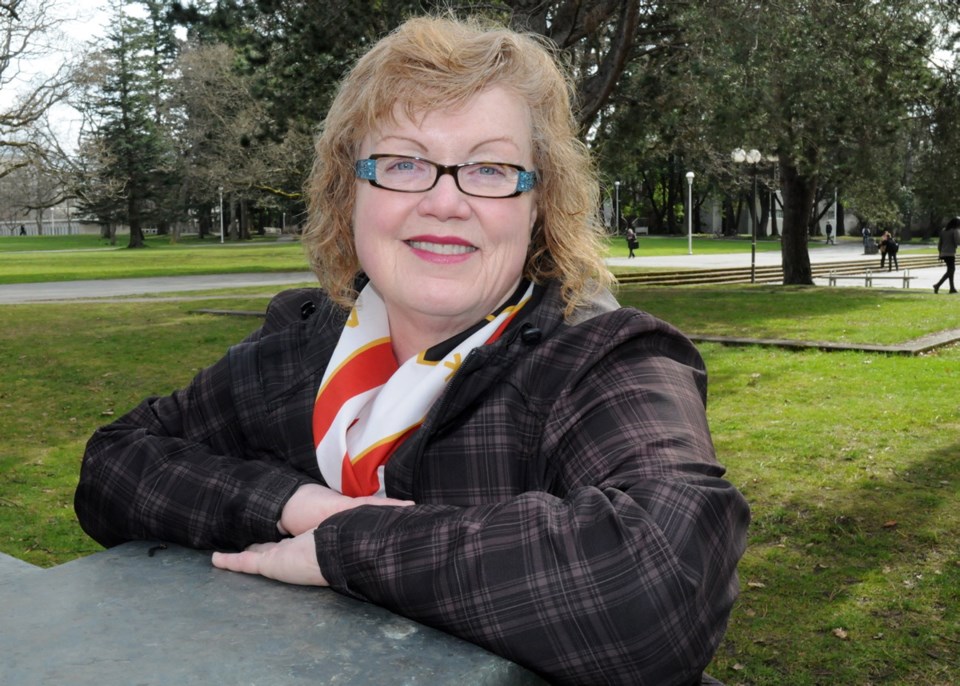Homelessness can be a full-time job called survival.
“A lot of energy goes into just finding food and a place to sleep everyday,” said Trudy Norman, a doctoral student at the University of Victoria who will present her latest research as part of IdeaFest on Thursday.
Norman is one of several scholars from the Centre for Addictions Research of B.C. offering talks and tours throughout the week.
Norman’s research began in 2012 with a look at what literature was available to help homeless people become involved the services geared toward them.
“There wasn’t much,” she said. The research was of particular interest to the Victoria Coalition to End Homelessness, born out of a mayor’s task force to end homelessness in the city by 2017.
Norman and her colleagues started the second phase of the project at the beginning of 2013, interviewing people about their experiences with homelessness and how they felt about participation in local services.
“It takes a leap of faith for people to participate and we discovered there are barriers,” Norman said. These can range from not having the means to attend meetings and feedback sessions to deep stigmatization and social exclusion.
“Will it mean they have to miss a meal or not be able to get in line for somewhere to sleep?” Norman said, noting things like providing lunch, childcare and bus passes to participants helps. “Are they being listened to?”
She also pointed out that many of the other parties involved in consultations are getting paid to be there as part of their job.
“We also must acknowledge the experiences of people who have been homeless as valuable and different from the academic stuff,” she said.
Norman said some of the other interesting points the project revealed were a sense of exclusion and of not being listened to by those offering services.
“Several people expressed the belief that they felt homelessness had become institutionalized,” said Norman. The participants felt they were part of an industry that served to provide jobs, not solve poverty issues.
Norman said the public is often surprised at her findings, especially the hard work it takes to survive when you’re homeless in Victoria.
She hopes hearing about their stories and her research will help further participation, understanding and respect for people facing homelessness.
“A lot of research we do at the centre is relevant to real-world problems, which I like,” said Bernie Pauly, a registered nurse and doctorate researcher with CARBC who focuses on substance abuse and homelessness.
She said IdeaFest is an excellent venue for the centre to show its breadth of research in different ways; lectures and open houses but also film screenings with informed discussions.
“It links the research to experience,” said Pauly, adding that attendees might be surprised by findings that challenge attitudes toward substance abuse and polices.
“They might learn something different,” she said.
CARBC at IdeaFest
Centre for Addictions Research of B.C. events during IdeaFest at the University of Victoria:
• Today — Alcohol use and post-secondary education: Do settings and timing matter? 12:30 p.m., Cornett A129. Kara Thompson examines how post-secondary institutions influence alcohol use.
• Thursday — Fostering participation in systematic responses and strategies to end homelessness with Trudy Norman, 12:30 p.m., Cornett B135.
The University of Victoria’s IdeaFest is being held this week until Saturday. For a list of events go to: uvic.ca/ideafest



